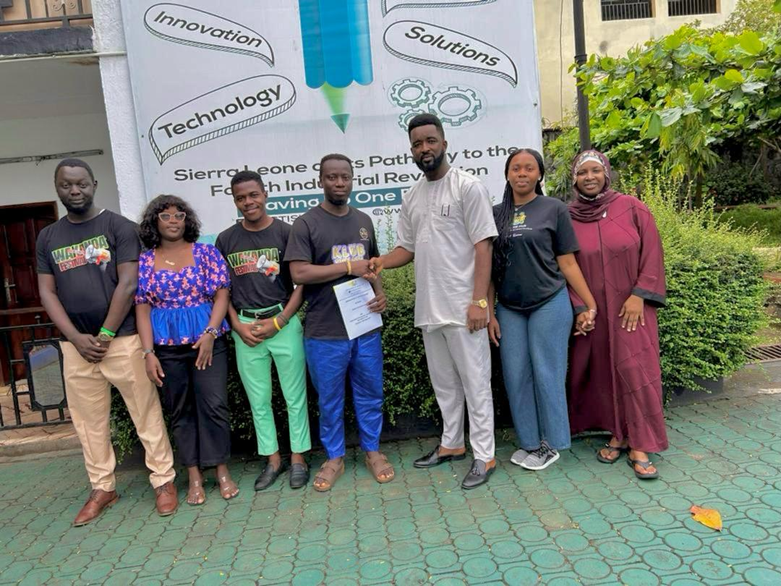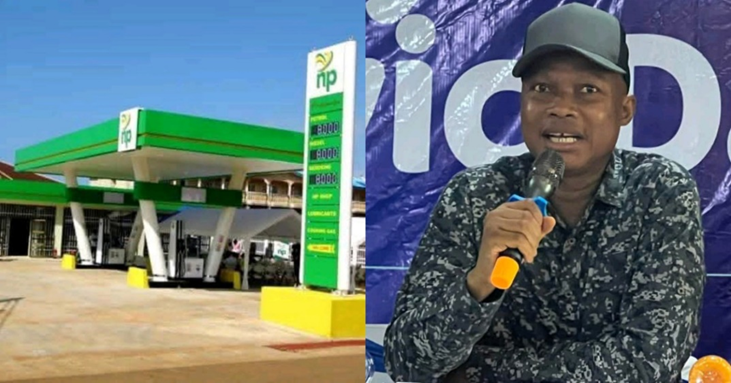By Mackie M. Jalloh
In a landmark move to strengthen Sierra Leone’s digital transformation agenda, the Directorate of Science, Technology and Innovation (DSTI), under the Office of the President, has signed a Memorandum of Understanding (MoU) with the Senate Organization, a dynamic community-based group based in Fourah Bay, Freetown. The agreement, officially sealed on October 3, 2025, represents a major step toward equipping young Sierra Leoneans with foundational information and communication technology (ICT) skills.
The collaboration underscores the government’s ongoing commitment to harnessing science, technology, and innovation as catalysts for national development. It also highlights the growing role of grassroots organizations like the Senate Organization (commonly known as Klub Senate) in supporting public initiatives that empower communities, especially the youth, with digital literacy and employable skills.
Under the MoU, both parties have clearly defined responsibilities that reflect a shared vision for inclusive technological empowerment. The Senate Organization will take the lead in mobilizing and screening participants, ensuring consistent attendance, and providing organizational coordination throughout the program. On the other hand, DSTI will be responsible for the design and delivery of the ICT curriculum, providing training materials, offering a suitable learning venue, and awarding certificates to successful participants.
The partnership will be managed by Foday Kamara, representing the Senate Organization, and Emily Fanday, representing DSTI — both of whom will oversee implementation and ensure the project aligns with the national digital development framework.
This MoU is more than a mere formal agreement; it represents a vision for empowering the next generation of Sierra Leoneans to participate meaningfully in the digital economy. The program seeks to bridge the digital divide by making ICT education accessible to youths in underserved communities, thus preparing them for opportunities in education, entrepreneurship, and employment.
The Senate Organization, known for its vibrant community initiatives and unwavering commitment to youth empowerment, has once again demonstrated visionary leadership through this partnership. Since its establishment, the organization has built a reputation for driving social change from the grassroots — focusing on education, leadership, and human capital development. By collaborating with DSTI, Klub Senate is positioning itself as a critical bridge between local communities and national institutions.
Observers have praised the partnership as a timely and strategic move that complements Sierra Leone’s broader National Development Plan, which places emphasis on innovation, youth engagement, and capacity building. The digital skills training initiative is expected to roll out in several phases, starting in urban communities like Fourah Bay and expanding to other districts as the program gains momentum.
Speaking on the significance of the collaboration, community leaders in Fourah Bay described the MoU as “a beacon of opportunity for young people who have long yearned for practical ICT exposure.” They emphasized that such partnerships can transform the socio-economic outlook of communities by giving youths the tools they need to thrive in the digital age.
The DSTI, established in 2019 under the leadership of the President, has continued to pioneer projects that link science and innovation to national governance. From developing digital education platforms to advancing open data initiatives, DSTI has proven to be a key driver of Sierra Leone’s technological future. Partnering with local organizations like the Senate Organization only amplifies this mission, ensuring that the benefits of technology are felt at the community level.
This MoU also represents a model for public-community partnerships, where state institutions work hand-in-hand with grassroots movements to achieve sustainable development goals. It reinforces the idea that digital inclusion is not just a government responsibility but a collective national effort.
As both DSTI and Senate Organization embark on this transformative journey, the promise is clear: to empower Sierra Leonean youths with the digital knowledge and confidence needed to compete globally, innovate locally, and contribute meaningfully to the country’s development.
Through this collaboration, Klub Senate has once again proven that true progress begins in the community — with partnerships built on trust, vision, and the shared belief that technology can change lives.



